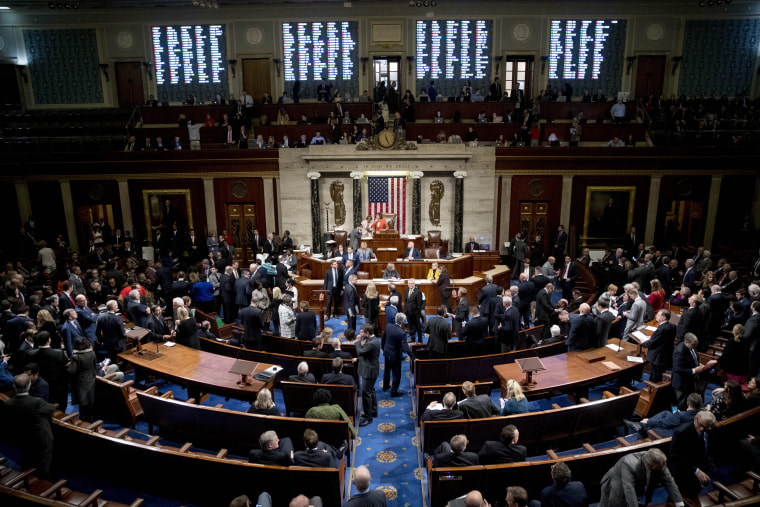As many Americans came to realize in recent months, QAnon is a crackpot conspiracy theory that says Donald Trump is secretly at war with nefarious forces of evil, including Democrats, Hollywood celebrities, the "deep state," cannibals, and an underground ring of Satanic pedophiles. As we've discussed, this isn't just the usual conspiratorial nonsense bubbling up from the right; it's vastly weirder, more radical, and more dangerous.
Last year, the FBI went so far as to classify QAnon as a domestic-terror threat in an internal memo. As recently as July, the West Point Combating Terrorism Center published a study characterizing QAnon as a burgeoning threat to public safety.
The delusional nonsense has become more politically relevant of late, in part because at least one of its adherents will soon be elected to Congress, in part because of the president's deeply unfortunate rhetoric on the matter, and in part because a House Democrat this week started receiving death threats from QAnon followers.
It's against this backdrop that the House today decided to vote on a bipartisan resolution condemning the crackpot conspiracy theory. NPR reported:
The House overwhelmingly approved a resolution condemning QAnon, the fringe movement that promotes wide-ranging conspiracies about the U.S. government and yet has enjoyed a rising tide inside conservative politics in part because of tacit encouragement from President Trump.
At first blush, the fact that this resolution was easily approved may seem like a small victory for common sense, but the roll call highlights a nagging detail: the measure didn't pass unanimously.
In fact, 17 House Republicans voted against it; one House Republican voted "present," and 34 House Republicans didn't vote on the resolution at all.
The Republicans who voted against the anti-QAnon resolution are Reps. Jodey Arrington, Michael Burgess, Bill Flores, and Brian Babin of Texas; Rob Bishop of Utah; Mo Brooks of Alabama; Buddy Carter and Drew Ferguson of Georgia; Warren Davidson of Ohio; Jeff Duncan and Ralph Norman of South Carolina; Paul Gosar of Arizona; Mike Kelly and Scott Perry of Pennsylvania; Tom Tiffany of Wisconsin; Daniel Webster of Florida; and Steve King of Iowa.
So, on the one hand, it's good that most GOP lawmakers voted for the bipartisan measure. On the other hand, about a fourth of the House Republican conference didn't vote for it.
